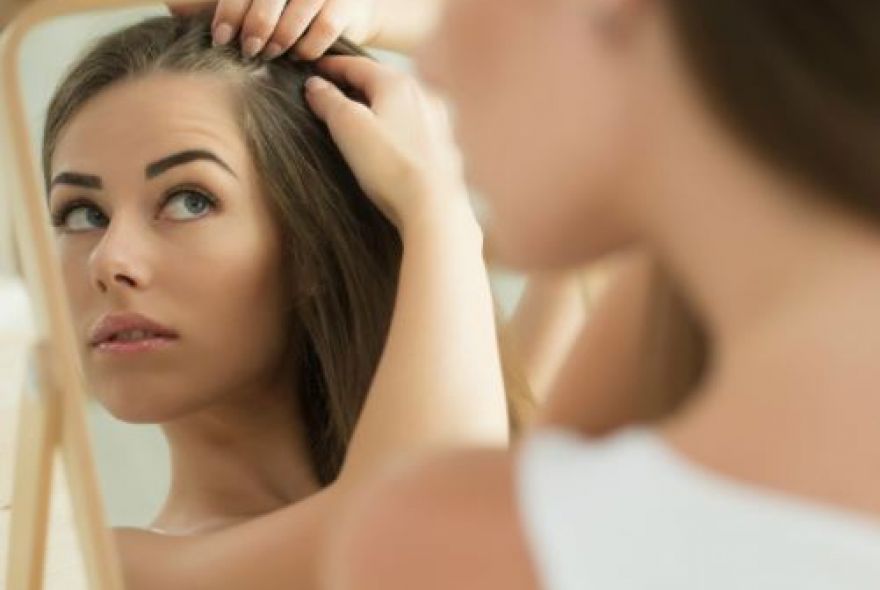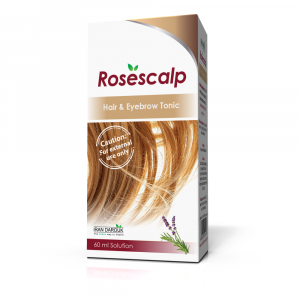What Causes an Itchy Scalp with Hair Loss and How Do I Treat It?
If you buy something through a link on this page, we may earn a small commission.
Overview
An itchy scalp, also known as scalp pruritus, is a common condition. It can be caused by a number of factors and can be a symptom of an underlying medical condition.
In some cases, the itchiness may be accompanied by flakiness, scaly patches, bumps, and even hair loss. Hair loss may occur when scratching is aggressive or the scalp condition affects the structure or strength of the hair follicles. Once the underlying scalp condition is treated, the hair usually regrows.
Causes of an itchy scalp and hair loss
Everyone has an itchy scalp from time to time, and it’s normal to lose 50 to 100 hairs a day, according to the American Academy of Dermatology. However, it may be concerning when scalp itchiness is excessive or constant, you notice crusty areas on your scalp, or you experience more-than-normal hair loss. Here are some common causes of itchy scalp and hair loss.
Dandruff
It’s generally thought that dandruff is the result of overactive oil glands on the scalp. This is why dandruff doesn’t usually develop until the teen years, when an influx of hormones kicks the skin’s oil production up a notch.
Some researchers also speculate that dandruff (also called seborrhea) is caused by a yeast infection of the scalp and hair follicles. Besides inflaming the scalp and causing itching, yeast can weaken the hair root and lead to hair loss.
Hair loss with dandruff is rare, however. It only occurs when the dandruff is severe and left untreated for long periods of time.
Psoriasis
According to the National Psoriasis Foundation, about 50 percent of people living with psoriasis develop scalp psoriasis. This condition may cause:
• silvery, dry scales on the scalp
• inflamed scalp
• hair loss that results from excessive scratching or pulling the scales off
Alopecia areata
Besides causing scalp itchiness and tingling, alopecia areata can cause tufts of hair to fall out. This can result in circular patches of baldness. The condition is thought to arise when the immune system attacks healthy hair follicles. It most often occurs in people who have a family history of other autoimmune diseases, such as type 1 diabetes or rheumatoid arthritis.
Tinea capitis
Also known as ringworm of the scalp, tinea capitis is a fungal infection that penetrates deep into the hair shaft, causing itchiness and hair loss. Depending on the type of fungi responsible for the infection, the hair may break off at the scalp’s surface or just above, leaving hair stubs.
The infection is highly contagious, is mostly seen in young children, and can also be accompanied by:
• a raised, dry, scaly rash
• black, bumpy dots on the scalp
Allergic reactions
In severe cases, allergic reactions to things like hair dyes can cause an inflamed, itchy scalp and hair loss. In one study published in ISRN Dermatology,researchers found that up to 1 percentTrusted Source of the subjects were allergic to paraphenylendiamine (PPD), a common ingredient found in hair dyes. PPD is capable of causing severe hair loss in sensitive people. Inflammation and itching can also occur on the scalp around bug bites and can look like a rash or allergy.
Folliculitis
Folliculitis is an inflammation of the hair follicles. It’s usually caused by staph bacteria or fungi. It can occur on your skin wherever hair grows, including the scalp. In addition to causing small, itchy bumps on the skin, folliculitis that affects the scalp can cause temporary hair loss. With proper treatment, the hair usually grows back. However, in rare cases, the condition can cause permanent hair loss.
Lichen planopilaris
Lichen planopilaris is an inflammatory scalp condition thought to be due to a faulty immune system. It tends to occur in young adult women and can produce patches of hair loss along with scalp:
• scaling
• redness
• burning
• bumps
• blisters
The hair loss can be permanent if hair follicles are irreversibly scarred.
Medical treatments for an itchy scalp with hair loss
Treatments vary depending on the cause of the itchiness and hair loss. Your doctor may recommend:
• steroids (taken orally or applied to the scalp via cream or injection) to reduce inflammation
• antifungals (applied topically or orally) to combat yeast
• immunotherapy medication to turn the immune response on or off
Common therapies to treat hair loss include:
• minoxidil (Rogaine) to slow hair loss and regrow new hair
• finasteride (Propecia) to treat inherited baldness
• hair transplantation
Natural and at-home treatment for an itchy scalp with hair loss
Not every itchy scalp with hair loss needs medical treatment. Here are some things you can do yourself to ensure that your scalp and hair stay healthy.
Eat a healthy diet
Important nutrients for hair and scalp health include:
• iron
• zinc
• niacin
• selenium
• vitamins A, D, and E
• biotin
• amino acids
• protein
One caveat: Don’t take these nutrients in supplement form unless you know you have a deficiency. According to research published in Dermatology Practical and ConceptualTrusted Source, there’s no good scientific evidence showing these supplements prevent hair loss if you already have adequate amounts in your body. What’s more, over-supplementation can actually cause hair loss.
Use targeted shampoos
If you have dandruff, for example, use a shampoo that contains selenium or zinc to combat yeast.
Try essential oils
There isn’t a much scientific evidence available, but some animal studies have shown that using certain essential oils, such as rosemaryTrusted Source and peppermintTrusted Source, can slow hair loss and promote new hair growth. Essential oils need to be diluted with a carrier oil before applying to the scalp.
Try peppermint oil or rosemary oil diluted with a carrier oil now.
Enjoy a scalp massage
Research published in EplastyTrusted Source shows that scalp massage can increase the thickness of hair, possibly by increasing blood flow or by stimulating hair cells.
Treat hair gently
To limit hair loss:
• do not scratch vigorously
• do not wear your hair tied tightly in a ponytail
• do not expose your scalp and hair to high heat and styling products
• wash with a gentle shampoo and let air dry, at least until you figure out what’s causing your scalp itchiness and hair loss



Comments
Add new comment